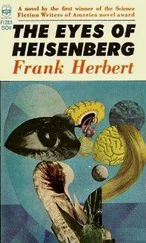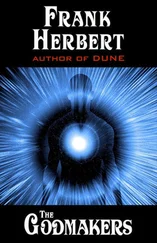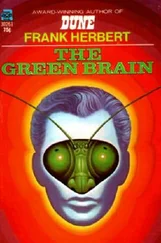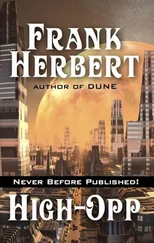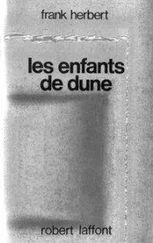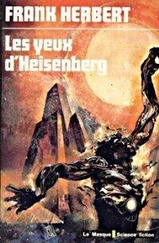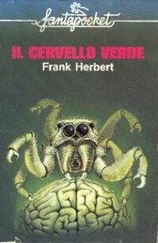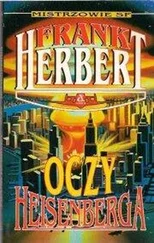Frank Herbert - The Dosadi Experiment
Здесь есть возможность читать онлайн «Frank Herbert - The Dosadi Experiment» весь текст электронной книги совершенно бесплатно (целиком полную версию без сокращений). В некоторых случаях можно слушать аудио, скачать через торрент в формате fb2 и присутствует краткое содержание. Год выпуска: 1969, Жанр: Фантастика и фэнтези, на английском языке. Описание произведения, (предисловие) а так же отзывы посетителей доступны на портале библиотеки ЛибКат.
- Название:The Dosadi Experiment
- Автор:
- Жанр:
- Год:1969
- ISBN:нет данных
- Рейтинг книги:4 / 5. Голосов: 1
-
Избранное:Добавить в избранное
- Отзывы:
-
Ваша оценка:
- 80
- 1
- 2
- 3
- 4
- 5
The Dosadi Experiment: краткое содержание, описание и аннотация
Предлагаем к чтению аннотацию, описание, краткое содержание или предисловие (зависит от того, что написал сам автор книги «The Dosadi Experiment»). Если вы не нашли необходимую информацию о книге — напишите в комментариях, мы постараемся отыскать её.
The Dosadi Experiment — читать онлайн бесплатно полную книгу (весь текст) целиком
Ниже представлен текст книги, разбитый по страницам. Система сохранения места последней прочитанной страницы, позволяет с удобством читать онлайн бесплатно книгу «The Dosadi Experiment», без необходимости каждый раз заново искать на чём Вы остановились. Поставьте закладку, и сможете в любой момент перейти на страницу, на которой закончили чтение.
Интервал:
Закладка:
He still sat opposite Aritch in the High Magister's sanctus, and this near-insult was only one indicator marking the changed atmosphere between them. The sun had dropped closer to the horizon and its spiritual ring no longer outlined Aritch's head. The two of them were being more direct now, if not more candid, having explored individual capacities and found where profitable discourse might be directed.
The High Magister flexed his thigh tendons.
Knowing these people from long and close observation, McKie realized the old Gowachin was in pain from prolonged inactivity. That was an advantage to be exploited. McKie held up his left hand, enumerated on his fingers:
"You say the original volunteers on Dosadi submitted to memory erasure, but many of their descendants are immune to such erasure. The present population knows nothing about our ConSentient Universe."
"As far as the present Dosadi population comprehends, they are the only people on the only inhabited planet in existence."
McKie found this hard to believe. He held up a third finger.
Aritch stared with distaste at the displayed hand.
There were no webs between the alien fingers!
McKie said, "And you tell me that a DemoPol backed up by certain religious injunctions is the primary tool of government there?"
"An original condition of our experiment," Aritch said.
It was not a comprehensive answer, McKie observed. Original conditions invariably changed. McKie decided to come back to this after the High Magister had submitted to more muscle pain.
"Do the Dosadi know the nature of the Caleban barrier which encloses them?"
"They've tried rocket probes, primitive electromagnetic projections. They understand that those energies they can produce will not penetrate their 'God Wall.' "
"Is that what they call the barrier?"
"That or 'The Heavenly Veil.' To some degree, these labels measure their attitude toward the barrier."
"The DemoPol can serve many governmental forms," McKie said. "What's the basic form of their government?"
Aritch considered this, then:
"The form varies. They've employed some eighty different governmental forms."
Another nonresponsive answer. Aritch did not like to face the fact that their experiment had assumed warlord trappings. McKie thought about the DemoPol. In the hands of adepts and with a population responsive to the software probes by which the computer data was assembled, the DemoPol represented an ultimate tool for manipulation of a populace. The ConSentiency outlawed its use as an assault on individual rights and freedoms. The Gowachin had broken this prohibition, yes, but a more interesting datum was surfacing: Dosadi had employed some eighty different governmental forms without rejecting the DemoPol. That implied frequent changes.
"How often have they changed their form of government?"
"You can divide the numbers as easily as I," Aritch said. His tone was petulant.
McKie nodded. One thing had become quite clear.
"Dosadi's masses know about the DemoPol, but you won't let them remove it!"
Aritch had not expected this insight. He responded with revealing sharpness which was amplified by his muscle pains.
"How did you learn that?"
"You told me."
"I?"
"Quite plainly. Such frequent change is responsive to an irritant - the DemoPol. They change the forms of government, but leave the irritant. Obviously, they cannot remove the irritant. That was clearly part of your experiment - to raise a population resistant to the DemoPol."
"A resistant population, yes," Aritch said. He shuddered.
"You've fractured ConSentient Law in many places," McKie said.
"Does my Legum presume to judge me?"
"No. But if I speak with a certain bitterness, please recall that I am a Human. I embrace a profound sympathy for the Gowachin, but I remain Human."
"Ahhhh, yes. We must not forget the long Human association with DemoPols."
"We survive by selecting the best decision makers," McKie said.
"And a DemoPol elevates mediocrity."
"Has that happened on Dosadi?"
"No."
"But you wanted them to try many different governmental forms?"
The High Magister shrugged, remained silent.
"We Humans found that the DemoPol does profound damage to social relationships. It destroys preselected portions of a society."
"And what could we hope to learn by damaging our Dosadi society?"
"Have we arrived back at the question of expected benefits?"
Aritch stretched his aching muscles.
"You are persistent, McKie. I will say that."
McKie shook his head sadly.
"The DemoPol was always held up to us as the ultimate equalizer, a source of decision-making miracles. It was supposed to produce a growing body of knowledge about what a society really needed. It was thought to produce justice in all cases despite any odds."
Aritch was irritated. He leaned forward, wincing at the pain of his old muscles.
"One might make the same accusations about the Law as practiced everywhere except on Gowachin worlds!"
McKie suppressed a sharp response. Gowachin training had forced him to question assumptions about the uses of law in the ConSentiency, about the inherent rightness of any aristocracy, any power bloc whether majority or minority. It was a BuSab axiom that all power blocs tended toward aristocratic forms, that the descendants of decision makers dominated the power niches. BuSab never employed offspring of their agents.
Aritch repeated himself, a thing Gowachin seldom did.
"Law is delusion and fakery, McKie, everywhere except on the Gowachin worlds! You give your law a theological aura. You ignore the ways it injures your societies. Just as with the DemoPol, you hold up your law as the unvarying source of justice. When you . . ."
"BuSab has . . ."
"No! If something's wrong in your societies, what do you do? You create new law. You never think to remove law or disarm the law. You make more law! You create more legal professionals. We Gowachin sneer at you! We always strive to reduce the number of laws, the number of Legums. A Legum's first duty is to avoid litigation. When we create new Legums, we always have specific problems in mind. We anticipate the ways that laws damage our society."
It was the opening McKie wanted.
"Why are you training a Wreave?"
Belatedly, Aritch realized he had been goaded into revealing more than he had wanted.
"You are good, McKie. Very good."
"Why?" McKie persisted. "Why a Wreave?"
"You will learn why in time."
McKie saw that Aritch would not expand on this answer, but there were other matters to consider now. It was clear that the Gowachin had trained him for a specific problem: Dosadi. To train a Wreave as Legum, they'd have an equally important problem in mind . . . perhaps the same problem. A basic difference in the approach to law, species differentiated, had surfaced, however, and this could not be ignored. McKie well understood the Gowachin disdain for all legal systems, including their own. They were educated from infancy to distrust any community of professionals, especially legal professionals. A Legum could only tread their religious path when he completely shared that distrust.
Do I share that distrust?
He thought he did. It came naturally to a BuSab agent. But most of the ConSentiency still held its professional communities in high esteem, ignoring the nature of the intense competition for new achievements which invariably overcame such communities: new achievements, new recognition. But the new could be illusion in such communities because they always maintained a peer review system nicely balanced with peer pressures for ego rewards.
"Professional always means power," the Gowachin said.
The Gowachin distrusted power in all of its forms. They gave with one hand and took with the other. Legums faced death whenever they used the Law. To make new law in the Gowachin Courtarena was to bring about the elegant dissolution of old law with a concomitant application of justice.
Читать дальшеИнтервал:
Закладка:
Похожие книги на «The Dosadi Experiment»
Представляем Вашему вниманию похожие книги на «The Dosadi Experiment» списком для выбора. Мы отобрали схожую по названию и смыслу литературу в надежде предоставить читателям больше вариантов отыскать новые, интересные, ещё непрочитанные произведения.
Обсуждение, отзывы о книге «The Dosadi Experiment» и просто собственные мнения читателей. Оставьте ваши комментарии, напишите, что Вы думаете о произведении, его смысле или главных героях. Укажите что конкретно понравилось, а что нет, и почему Вы так считаете.

